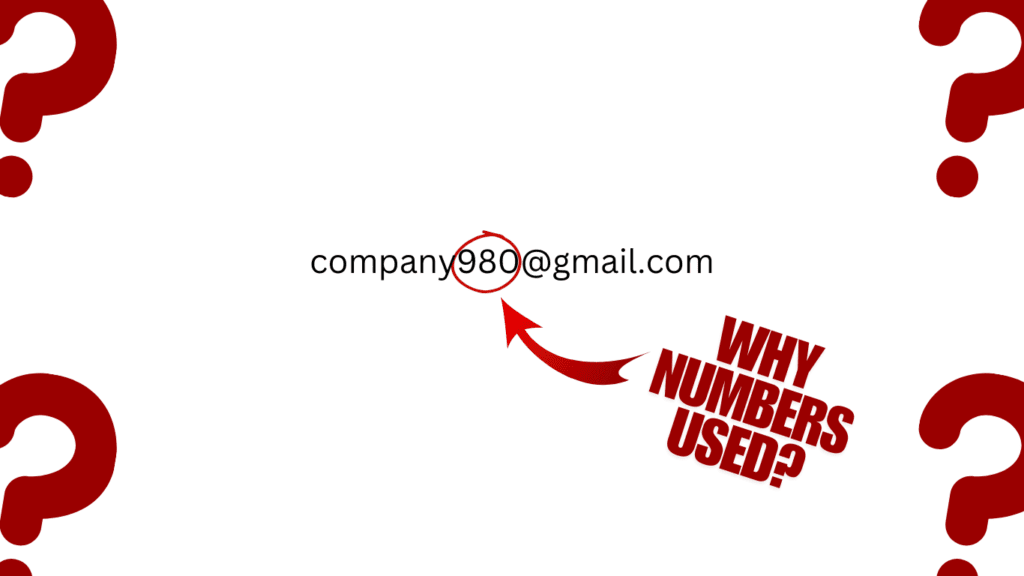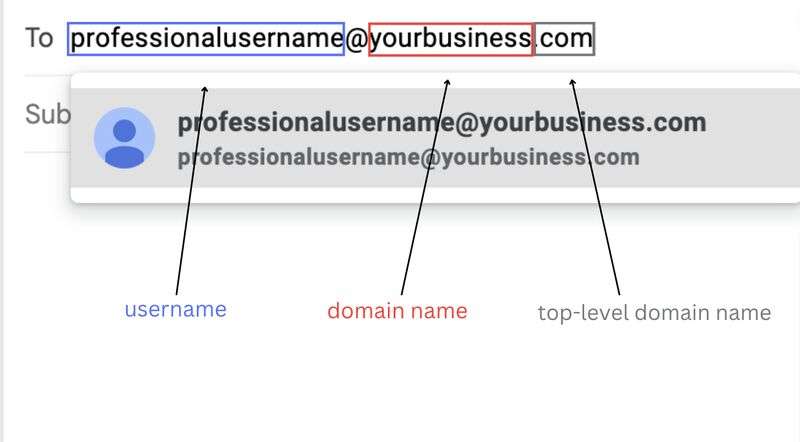5 Critical Reasons Why Professional Email Addresses Should Avoid Using Numbers
Can Professional Email Addresses Have Numbers? Here’s Why It’s Best to Avoid Them
When it comes to creating a professional email address, first impressions matter. Email addresses that look clean, simple, and direct are often seen as more professional and trustworthy. The question many people ask is, can professional email addresses have numbers, and is it advisable? While it’s technically possible to use numbers in a business email, this guide will explain why it’s best to avoid them and offer alternative solutions for a more polished, memorable email address.
In today’s digital landscape, a well-structured email address can strengthen your brand, communicate reliability, and make it easy for clients to contact you. Using numbers in your email, however, may compromise that professional image.
Why Do People Add Numbers to Professional Email Addresses?

In most cases, people add numbers to their email addresses because of availability issues. Common names are often already in use, and adding numbers can create a unique email without changing the name. Here are some common reasons numbers appear in email addresses:
- Availability: Popular names often require differentiation, so adding a number makes it easier to find an available email.
- Personal Meaning: Some people might want to include meaningful numbers, like a birth year or a business launch date.
- Organizational Identification: In large organizations, employees sometimes add a number to distinguish between multiple individuals with the same name.
Despite these reasons, the potential downsides often outweigh the benefits, especially when trying to maintain a strong, professional image.
The Drawbacks of Using Numbers in Professional Email Addresses
Although adding numbers can solve availability issues, it can also introduce a range of issues that may impact your professional image, credibility, and brand.
1. Decreased Professionalism and Credibility
Using numbers in an email address can sometimes make it appear unpolished, informal, or even spam-like. For instance, “johnsmith78@company.com” or “consultingpro365@domain.com” may give the impression that the user was forced to settle for an option rather than selecting a purposefully crafted, professional email address.
2. Harder to Remember and Communicate
Email addresses with numbers can be confusing to remember, especially when reciting them over the phone or in written materials. People are more likely to remember an email without extra characters or numbers. An email address like “john.smith@domain.com” is simpler and more intuitive than “johnsmith283@domain.com”.
3. Increased Risk of Typos
Adding numbers increases the chance of errors, especially in spoken or written form. If someone mishears or mistypes a digit, your message may not be received. For example, “johnsmith283@domain.com” could easily be confused with “johnsmith238@domain.com,” leading to potential communication issues and missed opportunities.
4. Challenges in Building a Consistent Brand Image
Professional email addresses should be clean and consistent with your brand’s identity. Adding random numbers can dilute that image, making it harder for customers or clients to take your business seriously. Simple email formats that exclude numbers often appear more aligned with established, reputable brands.
5. Perceived as Less Professional in Formal Industries
In fields like law, finance, and consulting, where professionalism is highly valued, an email address with numbers may not align with the expected level of formality. Industries with more conservative reputations tend to favor straightforward, number-free email addresses.
How to Create a Professional Email Address Without Numbers

1. Use a Middle Initial or Full Middle Name
If your first and last name combination is already taken, consider adding your middle initial or full middle name. For instance, “john.a.smith@domain.com” is a clean, number-free option that maintains professionalism.
2. Add Your Job Title or Department
Another effective option is to incorporate your job title or department, especially if it aligns with your branding. For example, “johnsmith.marketing@domain.com” or “johnsmith.consulting@domain.com” can work well.
3. Use Subtle Variants of Your Name
If the standard format is unavailable, try using initials creatively. Variants like “jsmith@domain.com” or “j.smith@domain.com” offer professional alternatives without numbers.
4. Utilize Dashes or Periods
Separators like dots or dashes can break up names and create availability without introducing numbers. Email addresses like “john.smith@domain.com” or “john-smith@domain.com” often look professional and maintain readability.
Comparing Email Address Formats (Table)
| Format | Pros | Cons |
|---|---|---|
| Firstname.Lastname | Clean and professional | Commonly unavailable |
| Firstname.Lastname.Job | Industry-specific, unique | May be too long |
| Firstname.MI.Lastname | Allows variation without numbers | Adds complexity if multiple middle names |
| FirstnameLastnameInitial | Short, easy to remember | May still lack availability |
FAQs About Using Numbers in Professional Email Addresses
Q1: Can adding numbers in email addresses be professional?
Answer: While it’s possible, adding numbers is generally less professional and can give the impression of an informal or generic email. If possible, choose a format without numbers.
Q2: Are numbers in email addresses suitable for all industries?
Answer: Numbers in email addresses may be acceptable in creative or tech industries but are generally less appropriate in conservative fields like law, finance, or healthcare.
Q3: What alternatives exist if my preferred email address is unavailable?
Answer: Consider adding a middle initial, department, or using separators like dots or dashes to create a professional, number-free address.
Final Thoughts: Keep It Simple, Keep It Professional
When building a professional email address, simplicity and readability are key. Although adding numbers is an easy solution to availability issues, it often detracts from professionalism and can complicate brand identity. Instead, explore creative, number-free alternatives that uphold a polished image.


